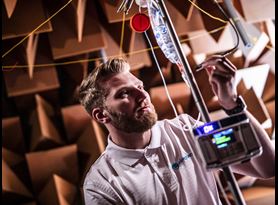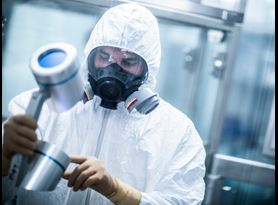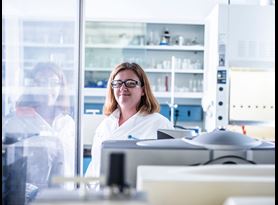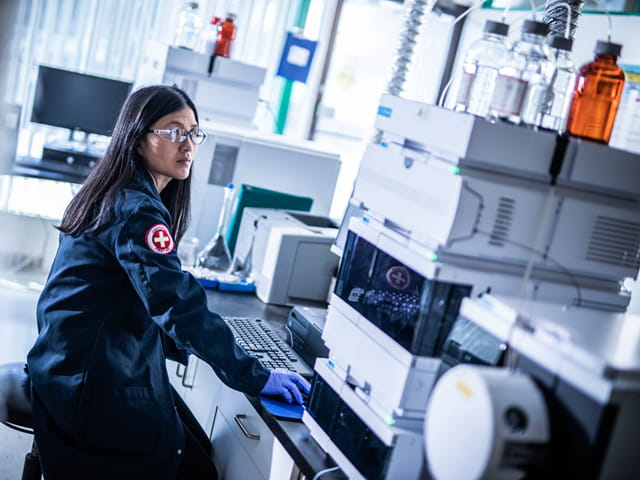The Food and Drug Administration (FDA), Centers for Disease Control and Prevention (CDC), and World Health Organization (WHO) have recently issued new policies surrounding license and efficacy testing requirements for hand sanitizers. All hand sanitizers in production are now required to undergo USP 611 Method II: Alcohol Determination performed by Gas Chromatography with Flame Ionization Detection (GC-FID) before they can be released to market.
Element provides complete hand sanitizer efficacy testing, including the required GC-FID method, to ensure your product will safely and effectively serve its intended purpose.
Alcohol Determination by GC-FID
Our alcohol determination testing by GC-FID per the USP 611 standard verifies the presence of at least 70% isopropyl alcohol (IPA) or 60% ethanol in the liquid or gel to ensure the product will effectively kill transient pathogenic bacteria. GC-FID’s direct analysis of the sample matrix allows our experts to determine your disinfectant’s efficacy without extensive sample preparation. This, in turn, reduces your testing cost and provides more precise results.
Component Determination by GC-MS
Element also offers component determination testing by Gas Chromatography with Mass Spectroscopy (GC-MS) to verify the composition of your hand sanitizer, ensuring purity and safety. This testing will identify any additional compounds that may be present in the product that could be harmful to users when applied to the skin.
Chemical Analysis against USP Monographs
Our Santa Fe Springs laboratory can also provide chemical analysis of ethanol and IPA against the USP monograph specifications to confirm that the raw materials in your product meet the FDA guidelines for use in the manufacturing of hand sanitizers.
COVID-19 Support
Element testing supports claims against SARS-CoV-2, the causative agent of COVID-19.
We offer expedited service for all hand sanitizer efficacy testing.
For more information about disinfectant efficacy testing or other services related to the COVID-19 pandemic, please contact us today.
Learn more

Medical Equipment and PPE Regulatory Reference Guide
Access our free guide to the proper protocols for US regulatory submission to help ensure your products get to market as quickly as possible and into the hands of those who need them.

Personal Protective Equipment (PPE) Testing
Element has developed solutions to perform and/or coordinate the required testing for PPE, hand sanitizers, masks, gowns, and face shields to help you get these products to market.

Chemical Compatibility Testing for Medical Devices, Materials, and Surfaces
Element can offer automated chemical compatibility testing that gives faster and more reliable results for medical device compatibility with medical disinfectants.
Element lends its support to UK ventilator initiative with free EMC and safety testing
Element is lending its support to the national drive to increase ventilator production in response to the NHS’ urgent demand to treat coronavirus patients in the UK.

